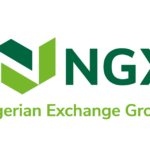Amid the dwindling fortune of the naira, the Nigerian National Petroleum Company (NNPC) Limited and the African Export-Import Bank (Afreximbank) have jointly signed a commitment letter and term sheet for an emergency $3 billion crude oil repayment loan.
This came at a time some experts said investors were losing confidence in the body language of President Bola Tinubu and those around him, especially in what they called “policy summersaults” after the initial decision to altogether remove fuel subsidy and encumbrances around the naira that led to arbitrage and widespread corruption that nearly grounded the economy.
But some sources said the recent utterances and actions of the Tinubu administration were a product of pressures from labour unions and millions of Nigerians who are finding it difficult to survive because of the high cost of living occasioned by unprecedented inflation.
The naira nearly clocked 1000 to a dollar within the week at which time fuel suppliers were contemplating increasing the cost of the product which currently sells at N617/litre.
The new move to save the economy.
- We’ll remove all bottlenecks to ease business operations – Tinubu
- Bayelsa residents suffering from metal poisoning – Dickson
The NNPC’s agreement signing with Afreximbank, which took place yesterday at the bank’s headquarters in Cairo, Egypt, will provide some immediate disbursement that will enable the NNPC to support the federal government in its ongoing fiscal and monetary policy reforms aimed at stabilising the exchange rate market.
Daily Trust reports that Nigeria has been looking to shore up its reserves and stem the fall of its currency, which has hit a record low on the black market two months after trading restrictions were loosened on the official market.
Speaking on the intervention, the Senior Special Assistant to President Tinubu on Digital and New Media, Otegra Ogra, said the loan is not a crude-for-refined products swap but an upfront cash loan against proceeds from a limited amount of future crude oil production.
He tweeted that the loan wasn’t a risk for NNPC or the Nigerian treasury and that the exposure for the oil company was very limited, covering just a fraction of their entitlements and therefore, there were no sovereign guarantees tied to it.
He noted that the loan will assist NNPC in settling taxes and royalties in advance.
He also said it will equally equip the federal government with the necessary dollar liquidity to stabilise the naira with limited risk.
He said: “The funds will be released in stages or tranches based on the specific needs and requirements of the federal government.
“A strengthened naira as a result of this initiative will lead to a reduction in fuel costs. This means that if the naira appreciates in value, the cost of fuel will drop and further increases will be halted.
Eurobonds drop on petrol price comment by FG
Amid the move by the government to save the naira, Nigeria’s international dollar-denominated bonds fell on Wednesday.
This came not long after the Special Adviser to President Tinubu on Media and Publicity, Ajuri Ngelale said petrol prices did not need to rise more, and blamed foreign exchange shortages on “gross mismanagement” at the Central Bank of Nigeria.
Reuters news agency had reported that Nigeria’s 2051 maturity dropped as much as 1.7 cents on the dollar to 68.894 cents, its lowest since June 2, before recovering to trade 0.57 cents lower at 1045 GMT.
President Tinubu axed a popular but costly petrol subsidy after coming to power in late May and soon after devalued the naira, both of which were long demanded by investors, driving a rally in Nigeria’s overseas bonds that peaked at the beginning of August.
“The slowdown to the pace of reform in Nigeria, and the potential for even the reversal of some reforming steps already taken, in combination with data released by the central bank, has weighed on investor sentiment, causing a reversal of some of the outperformance of Nigerian Eurobonds against its peers,” Yvette Babb, an emerging market fixed income investor at William Blair, told the Reuters.
The scrapping of the fuel subsidy saw petrol prices more than triple and pushed already double-digit inflation to an 18-year high in July, data showed on Tuesday.
Ngelale had told reporters in Abuja that Tinubu was not disposed to any pump price increment saying “Nigeria did not need an upward movement of pump price in order to accommodate the market-driven reality”.
This decision, according to Carlos de Sousa, is disappointing for investors.
Also speaking, professor of capital markets, Uche Uwaleke said: “I think it’s a contradiction of some sort. It’s a no-brainer that if the government has completely washed its hands off fuel subsidy, allowing market forces to determine the pump price of fuel, then it is no more in a position to guarantee that the oil marketers will not increase the price of PMS following increases in the international crude oil price and the exchange rate.”
According to him, “If the security for the loan is some barrels of future crude oil production, at what forward contract price has this been negotiated? In view of the fact that all proceeds of crude oil sales are paid into the federation account, this sort of swap transaction has implications for FAAC receipts meant for the three tiers of government.”
Stabilise naira, fix refineries, marketers tell FG
On the way forward, experts yesterday urged the federal government to urgently accelerate the fixing of the refineries and ensure the integrity of the pipelines in the medium term to ensure the stability of the naira in order to avoid a hike in the price of petrol.
These were some of the consensus from experts on the promise by the presidency that there was no plan to increase pump prices as a result of the volatility of the naira.
The Chairman of the Independent Petroleum Marketers Association of Nigeria (IPMAN), Ejigbo Satellite Depot, Mr Akin Akinrinade, said stabilising the naira in the short term will be important to achieve the promise of the FG.
“There are two things that the government can do. The immediate one is the stability of the naira because as the price of the dollar goes up, the price of petrol will go up. The government should intervene to ensure the stability of the Naira,” he said.
While noting that IPMAN does not subscribe to subsidies, he called on the FG to fix the refineries.
He said fixing the refineries as well as the coming on stream of private refineries, will address the foreign exchange challenges in the sector.
An executive of the Major Oil Marketers Association of Nigeria, MOMAN, who does not want his name in print, said the government should also license interested industry players to export crude and import refined products to the country.
He said this will end the monopoly of the Nigerian NNPC in the sector.
“Part of the challenges we are facing is the inefficiency in that sector. The government can agree with willing bidders to export crude and sell the refined product at an agreed rate,” he said.
By Sunday M Ogwu, Philip S. Clement (Abuja) & Abiodun Alade (Lagos)

 Join Daily Trust WhatsApp Community For Quick Access To News and Happenings Around You.
Join Daily Trust WhatsApp Community For Quick Access To News and Happenings Around You.


